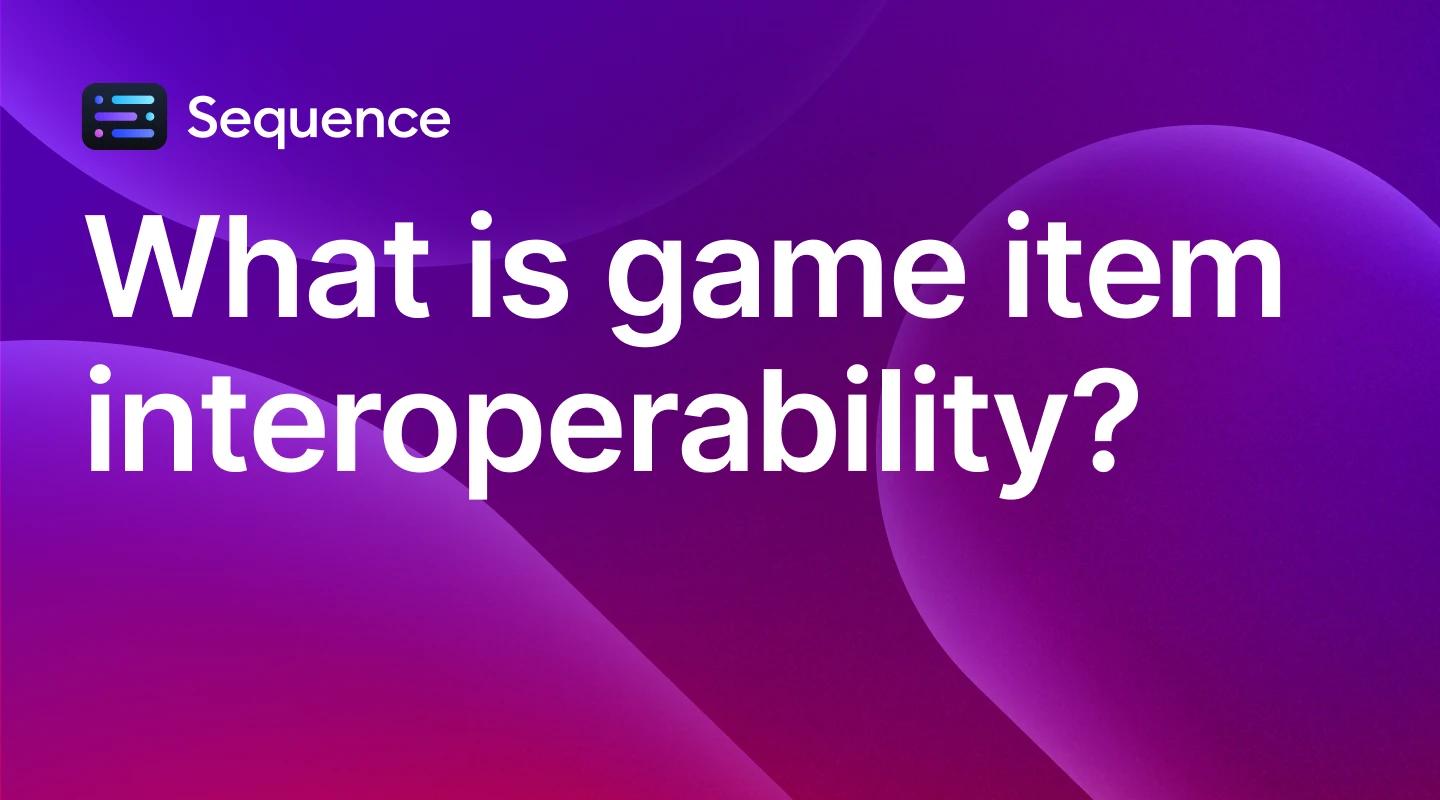Canal Mail Corp: Your Hub for Daily Insights
Explore the latest news, tips, and trends across various topics.
Crypto Games Without Borders: The Future of Interoperability
Discover how crypto games are breaking boundaries and paving the way for a seamless, interconnected gaming future. Join the revolution today!
Exploring Interoperability in Crypto Games: A New Era of Play
The evolution of interoperability in crypto games marks a significant departure from traditional gaming models, paving the way for an exciting future of interconnected play. By allowing assets and characters to be utilized across multiple platforms and games, interoperability enhances player agency and creates a seamless gaming experience. For instance, a character developed in one game can venture into the worlds of others, building a rich tapestry of gameplay. This new paradigm not only drives innovation but also fosters communities that thrive on shared accomplishments.
As we delve deeper into this new era, it's essential to consider the benefits that come with interoperability. Players can expect a greater value for their in-game purchases, as unique items can cross borders between ecosystems. Additionally, game developers are encouraged to collaborate, leading to fresh ideas and gameplay dynamics. Ultimately, the adoption of interoperable systems in crypto games could transform the industry; we are on the brink of a revolution that will change not just how we play, but also how we perceive the concept of ownership in digital environments.

Counter-Strike is a highly popular first-person shooter game that emphasizes team-based gameplay and strategic planning. Many players seek to enhance their gaming experience, and one way to do this is by using a bc.game promo code to access special bonuses and features. The game's competitive nature has led to a thriving esports scene, attracting millions of players and viewers worldwide.
How Can Cross-Platform Crypto Games Revolutionize the Gaming Experience?
The advent of cross-platform crypto games marks a transformative shift in the gaming industry, allowing players across different devices to engage in a unified gaming experience. Unlike traditional games that often restrict players to specific console or platform ecosystems, these innovative games leverage blockchain technology to create a seamless and interoperable environment. This means that regardless of whether players are on a PC, console, or mobile device, they can interact, trade, and compete with one another in real-time, fostering a robust and inclusive gaming community. With the integration of cryptocurrencies, players can also enjoy true ownership of in-game assets, elevating their gaming experience beyond mere entertainment.
Moreover, cross-platform crypto games facilitate a thriving economy where players can earn, trade, and invest in virtual assets. This economic model not only incentivizes gameplay through potential monetary rewards but also encourages creativity, as players can create unique content and experiences to share with others. As this gaming paradigm continues to evolve, we can expect a significant disruption in traditional gaming monetization strategies, paving the way for more equitable and rewarding structures. With their ability to connect diverse gaming communities and create sustainable economic ecosystems, cross-platform crypto games are set to revolutionize the way we play and engage in the virtual realm.
What Are the Benefits of Interoperable Crypto Games for Players and Developers?
Interoperable crypto games offer a revolutionary experience for players by allowing assets to move seamlessly across different games and platforms. This means that a player’s hard-earned in-game items, skins, or even currency can be used in various gaming environments, enhancing the overall gaming experience. For instance, if a player acquires a unique sword in one game, they can potentially use it in another, adding significant value to their achievements and deepening their engagement with multiple titles. Additionally, interoperability fosters a vibrant gaming ecosystem where players can exchange items and collaborate, leading to exciting new experiences and community interactions.
From a development perspective, interoperable crypto games present unique opportunities for innovation and creativity. Developers can create richer narratives and experiences by designing games that interact with one another. This not only encourages players to explore various games within the ecosystem but also promotes the growth of a dedicated player base. Furthermore, utilizing blockchain technology enables developers to leverage decentralized finance (DeFi) elements, creating new revenue streams through microtransactions, royalties, and player-driven economies. This dynamic not only benefits developers but also enhances the sustainability of their games in the long term.